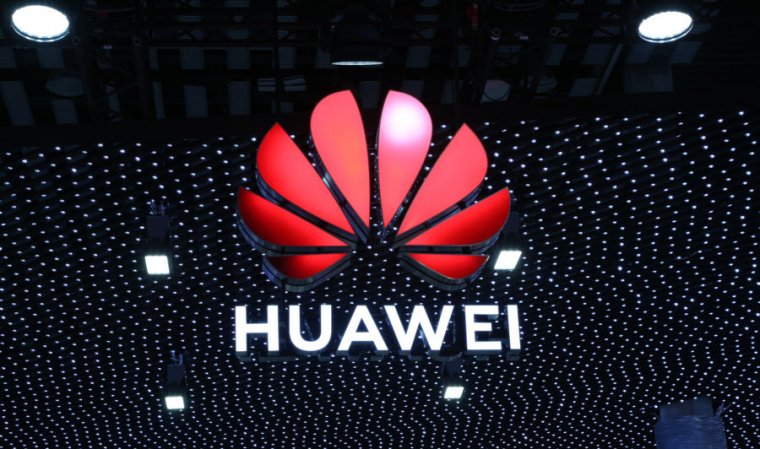

Huawei’s export ban is wider in scope than most people imagine | Ars Technica
source link: https://arstechnica.com/gadgets/2019/06/huaweis-export-ban-is-wider-in-scope-than-most-people-imagine/
Go to the source link to view the article. You can view the picture content, updated content and better typesetting reading experience. If the link is broken, please click the button below to view the snapshot at that time.
An export law examination —
Huawei’s export ban is wider in scope than most people imagine
Former US assistant secretary of export administration weighs in on Huawei's ban.
Ron Amadeo - 6/11/2019, 3:58 AM

The tech industry is still trying to wrap its collective head around the Trump administration's export ban on Huawei. We've seen Huawei be de-listed and then re-listed from industry groups like the Wi-Fi Alliance, Bluetooth SIG, and the SD Association. Companies like Panasonic provided a statement to the BBC saying it would suspend transactions with Huawei, then later said it believed its transactions with Huawei were not in breach of US regulations. We've even seen non-US companies like ARM cut off contact with Huawei due to the US export ban. If you're not familiar with how export law works, it can be tough to understand exactly what's going on.
For the ins and outs of export law, there's probably no better person to turn to than international trade lawyer Kevin Wolf, who recently wrote a bulletin detailing some of the finer points of how export law applies to Huawei. Wolf is the former assistant secretary of commerce for export administration during the Obama administration—from 2010 to 2017, Wolf's job was to enforce export regulations like this. In the article, Wolf says a lot of the media coverage around Huawei's export ban hasn't been thorough enough, as it hasn't taken into account the full scope of US export law.
As Wolf explains, export law applies not just to the country of origin for end products like a smartphone processor or chip, but it also covers commodities—the base components—as well as software and technology used in its construction. Export law has this sort of viral property to it, in that anything that contains more than a trivial amount (the legal term is "de minimis") of US-origin items also becomes a US-origin item. The objects then become subject to US export law.US export regulations are not concerned with determining some kind of majority ownership of a product—if there is any significant amount of US work in an item, that item is subject to US export law. As Wolf writes, "US-origin technology does not lose its US-origin status when it is redrawn, used, consulted, or otherwise commingled abroad in any respect with other technology of any other origin."
AdvertisementWe saw this property of export law in action when chip designer ARM ended its relationship with Huawei. ARM is based in Cambridge, UK, and was purchased by Japan's SoftBank in 2016. At a cursory glance, one might assume that ARM products would count as either UK or Japanese origin. ARM still declared that US export restrictions apply to its chip designs, though, so at some point, the company uses a US technology in its designs.
Since export law applies any time you use a US product in your manufacturing, making export-law determinations requires a complete and thorough understanding of how a product is manufactured. It's a good bet that only the manufacturer itself is familiar enough with any given product to know if said product uses a US-origin technology or not. Manufacturers are too secretive about their supply chains for an outside party to make an informed determination on export law.
For an outside party, identifying things that are definitely banned under the export law is relatively easy: items shipped from the US are banned, as are devices that contain US-origin technology. But clearing an item from US-export regulations is something only the manufacturer and a team of lawyers can do.
For software, export law's viral provisions still apply. Wolf writes that "US-origin software that is incorporated into or commingled with foreign-origin software does not lose its US-origin status." In the world of open source software, libraries, and other forms of copy/paste development, foreign developers would have to make sure they are doing clean room implementations of everything in order to not be subject to US export law.
(Open source, by the way, is not a way to dodge export law. Copyright to open source software is still owned by some entity—Google owns the Android copyright, for instance, while Linus Torvalds and others own Linux. US export law still applies.)
AdvertisementIn the case of software needed for Huawei's smartphone business, it's clear the company would not be allowed to use Android, even the open source parts. US app developers would not be allowed to make apps for a Huawei-owned app store. Regardless of where an Android app is developed, it would probably be controlled under US export law. The typical Android development workflow requires a host of US technologies, like the Android SDK, libraries, and other components.
Loophole? Probably not
There has been some speculation that Huawei could find some kind of loophole around the US export law or that it could do something like host its own app store via a third party. After all, the US Government does not control the world, so not everyone is subject to US laws, right? Well, US export law does not really work this way.
Wolf writes that export law prohibitions "apply equally to US and non-US persons" and that "Violations of the Entity List prohibitions by a non-US company can lead to civil or criminal penalties or other sanctions that would affect its ability to receive US-origin items." Export law is not like, say, the US tax code, where loopholes are easily found and exploited—no exports means no exports, and companies that help Huawei circumvent export law could also find themselves on the export ban list.
With the US being such a hub of hardware and software technologies that are distributed around the world, and with US export law applying so liberally to anything containing more than a trivial amount of US components, it would be very tough for Huawei to build telephony gear without running afoul of US export law. Our current technology supply chain was built on a highly cooperative global economy with lots of giant multinational corporations working together. The kind of clean-room product development that would be needed for Huawei to dodge US export regulations does not exist in the current tech supply chain. Every technology product is a global effort, with designs, software, and hardware sourced from around the world. It's a good bet a US technology is involved, somewhere, in many of those components.
Recommend
About Joyk
Aggregate valuable and interesting links.
Joyk means Joy of geeK
